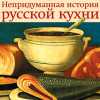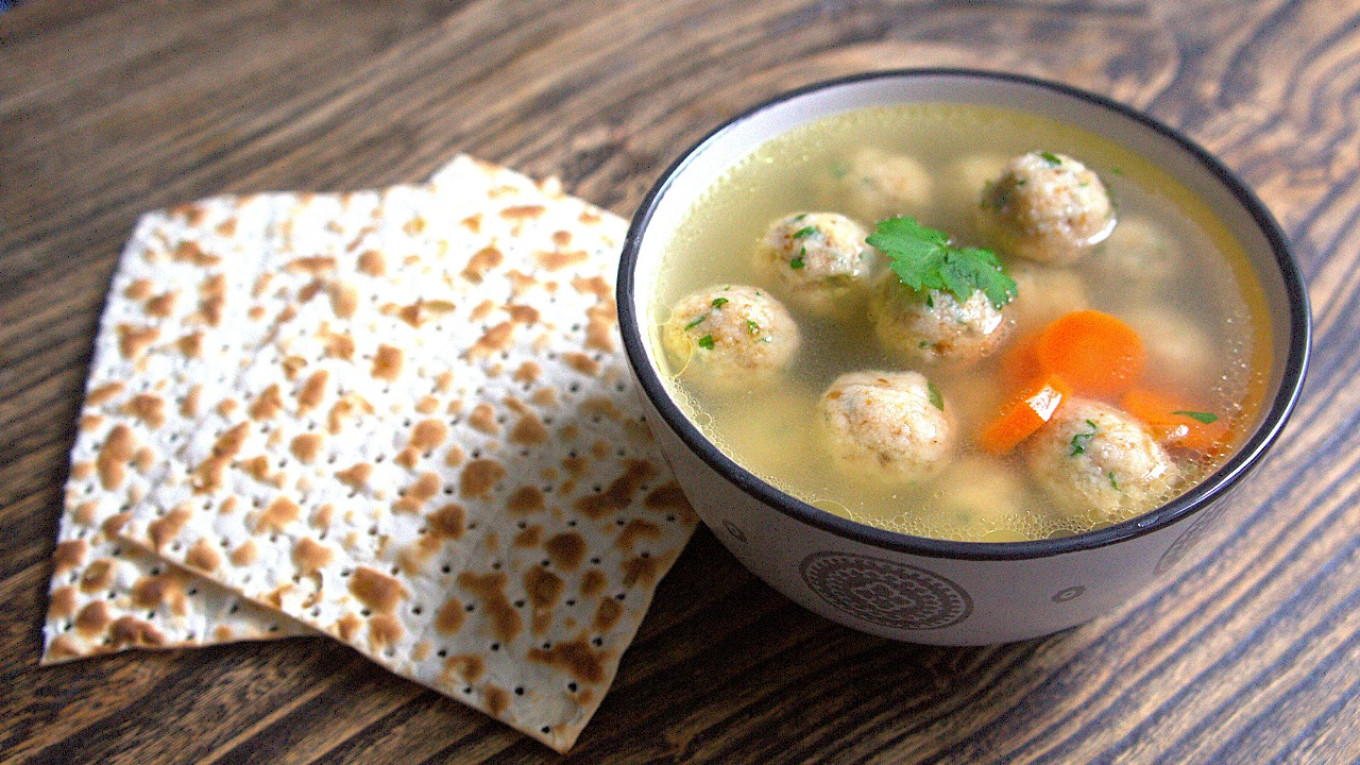We were always suspicious of dieticians in the Soviet Union. We secretly thought that there could be no friendship between cooks and people who sought to limit the enjoyment of food.
And as it turned out, this opinion was once shared by Comrade Stalin.
Manuil Pevzner was one of the founders of the Soviet field of nutritional medicine and dietetics. He had an amazing life. As early as 1900 he was practicing in the leading clinics in Germany before returning to defend his doctoral dissertation in Moscow. After the 1917 Revolution, he was one of the founders of the Institute of Nutrition of the People's Commissariat of Health of the USSR. He originated the field of medicinal diets. Until recently, his 15 “medical tables” (prescribed depending on the patient's condition) were still in use in hospitals and sanatoriums.
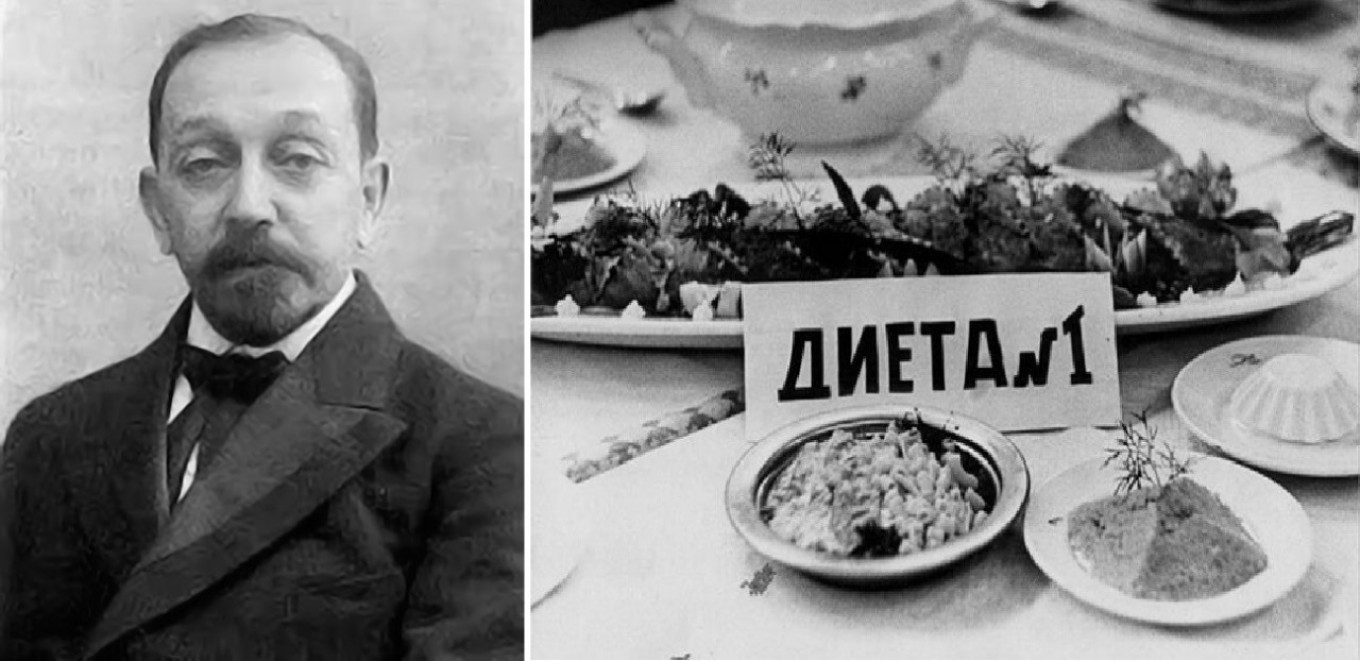
However, Professor Pevzner had another achievement, unrivaled to this day. A year after his death he became a “killer doctor.” This might suggest a murder mystery. But for someone who grew up in the USSR, it was very clear. It meant he was an enemy of the people.
The case of “killer doctors” was the last stage of Stalin's repressions. The case was never brought to conclusion since the Father of Nations died and the case collapsed. But in 1953 it did not seem funny. The headline of an article published on January 13 of that year read: “Despicable Spies and Murderers Under the Masks of Doctors and Pofessors of Medicine.”
The report uncovering the conspiracy was very creative: “Most of the participants in the terrorist group were paid off by American intelligence. They were recruited by a branch of American intelligence —the international Jewish bourgeois-nationalist organization “Joint.” The dirty face of this Zionist spy organization, which covers its despicable activities under the mask of charity, is completely exposed.”
The “spies” turned out to be several dozen professors, scientists and doctors who had names and a nationality that the paranoid Comrade Stalin did not like.
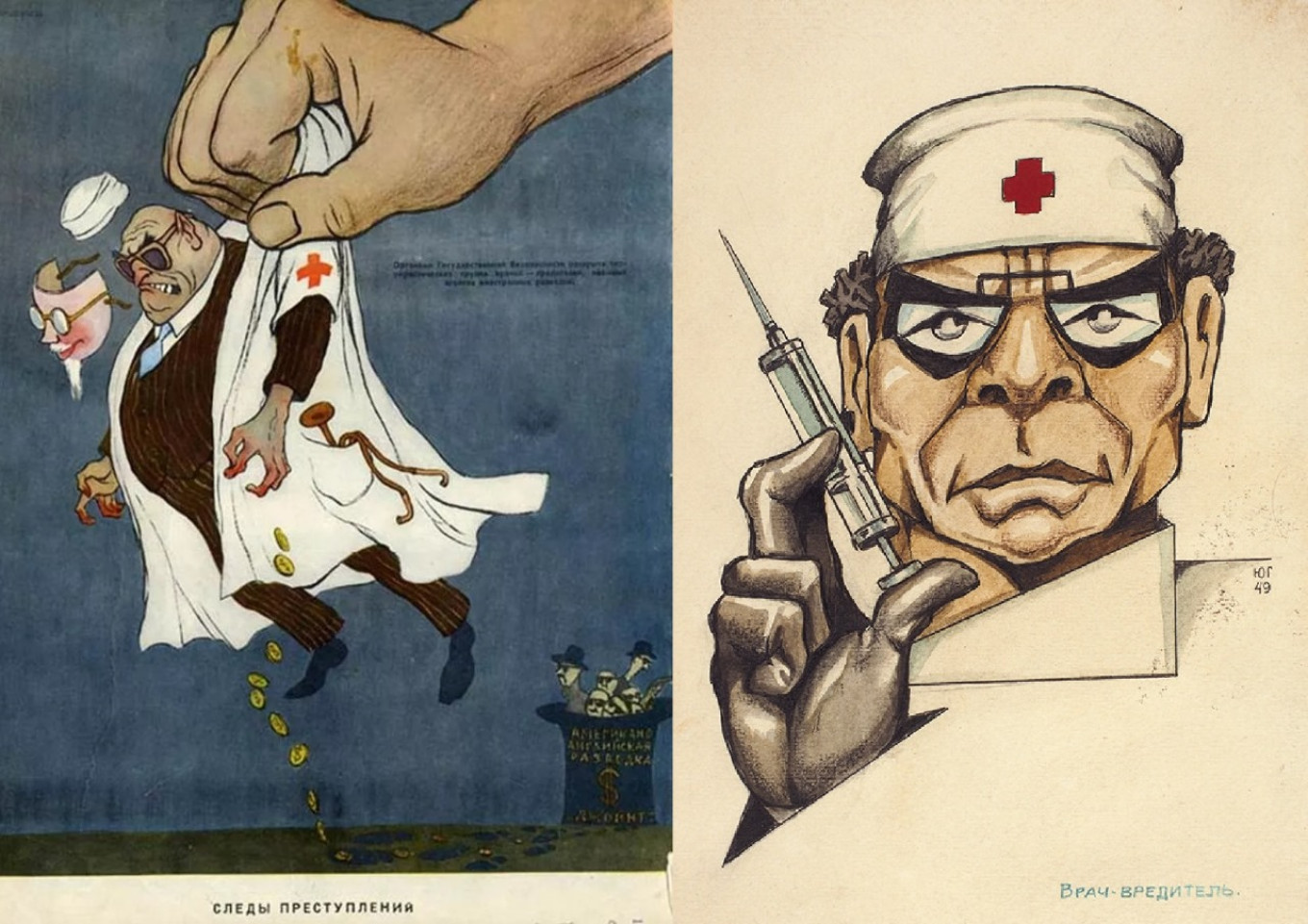
The recently published archive of Soviet diplomat and Politburo member Alexander Yakovlev contains a document typical of the time. In one testimony a certain Georgy Levin describes the activities of the “nationalist group” in the clinic of nutritional medicine: “The nationalistically minded persons grouped around M.I. Pevzner constantly praised him both within the walls of the clinic and outside it, glorifying him everywhere, portraying him as the founder of an entire ‘school’ that is fundamentally extremely harmful. For the 20 years of its existence, the clinic of nutritional medicine did not stand on Marxist, dialectical positions. It contradicted the teachings of Academician Pavlov and did not justify the huge expenditure of public funds on it.”
These lines, which seem like they are straight from the pages of George Orwell, were published when Professor Pevzner had already died and been buried in Smolensk for almost a year. In 1952 he died of a heart attack. His death, however, did not stop his vilification.
Even when we turn away from the inverted world of Stalinist fantasies, we must admit that Pevzner was indeed “hiding under a mask.” But he was hiding under the mask of a doctor who was actually one of the founders of Soviet gastronomy.
Bagels, vorschmack (forshmak) and challah are all dishes Russians know. We should not forget that the basis of the medical nutrition system developed in the USSR was Jewish cuisine. This brightly flavored, simple and yet vibrant cuisine became very popular. And the traditional products used in Jewish cooking (in its budget version) did not include any hard-to-find fermented products and easily fit into the modest post-revolutionary diet. When you add to this the Internationalism of Soviet power in the 1920s — which was both declared and actual — the result was that Jewish cuisine had a great influence on the development of Soviet cuisine.
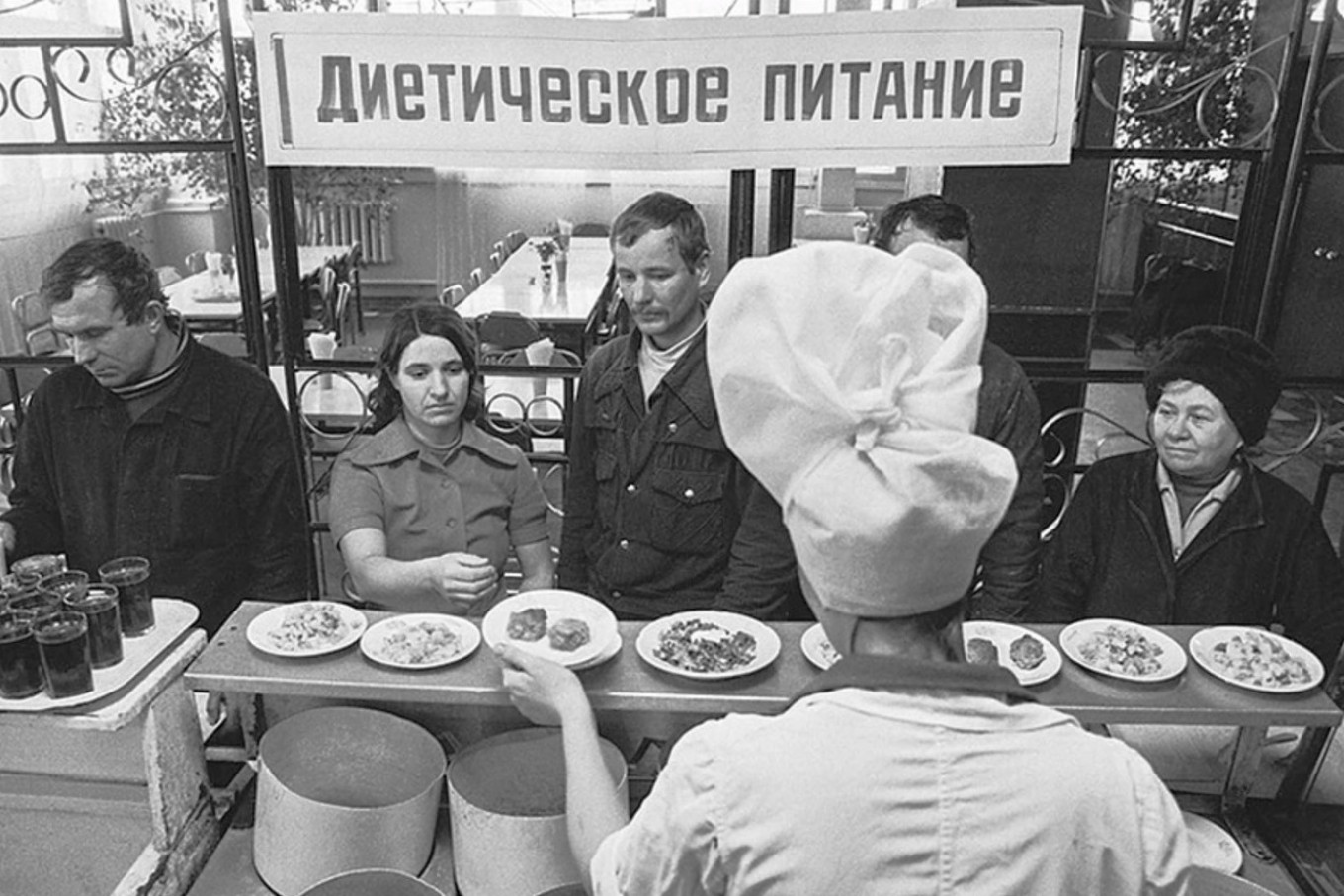
In the following years, Jewish dishes — healthy and easy on the digestive system — would become the basis for the specialized Soviet diet and included in the corresponding section of the “Book of Tasty and Healthy Food.” Dietetic food has somehow always remained outside official culinary history. But an objective researcher cannot ignore the contribution of Jewish cuisine to Russian and Soviet tradition.
As soon as we hear the phrase “Jewish cuisine,” most of us immediately conjure up images of stuffed fish, matzos and chicken broth. Let's not destroy this stereotype. We’ll make a simple soup so delicious that you’ll take matzo balls (kneidels) over meatballs any day.
It is best to use a real homegrown soup chicken: lean, wiry, with a lot of life experience. It makes the broth much tastier. But if you don't have one on hand, you can always add a few soup ingredients to enrich the flavor. Follow the recipe for a delicious — and healthy — soup.
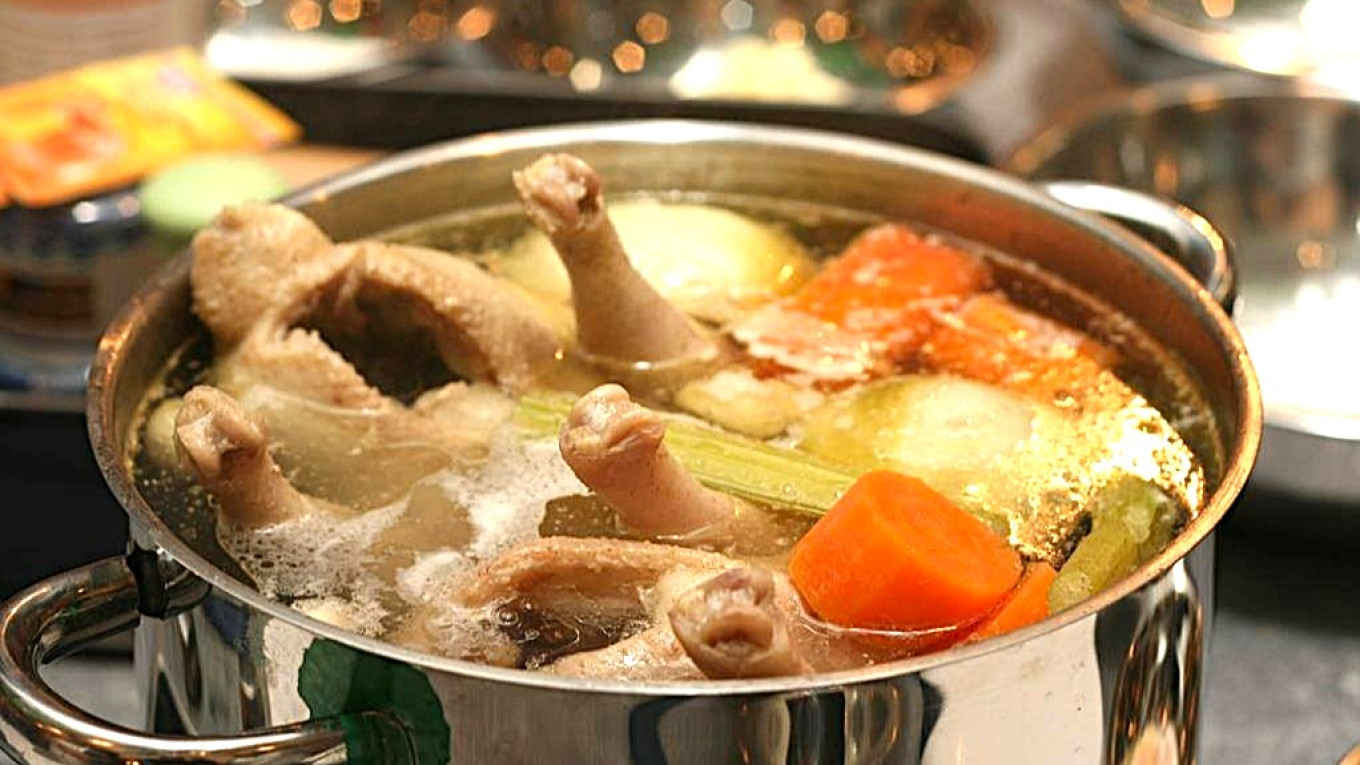
Matzo Ball Soup
Ingredients
For the broth:
- 1 chicken weighing 1.5 kg (3.3 lbs)
- 1 carrot
- 1 onion
- 1 stalk of celery
- 1/2 head of garlic
- salt, ground black pepper to taste and another carrot for garnish
For the kneidels:
- 75 g (2.6 oz or 2/3 c) matzo meal
- 2 eggs
- 1 small onion
- 3 sprigs of parsley
- 1 Tbsp butter or chicken fat
- Salt

Instructions
- Make the broth: Place the chicken in a large pot, pour 2.5 liters (2.6 quarts) of cold water over chicken, bring almost to a boil, reduce heat to low, skim off foam, add carrots, onions, celery and garlic. Salt. Cook for 2-4 hours — until the chicken is thoroughly cooked — on very low heat, without letting the broth boil. About 40 minutes before it is done, salt again to taste, if necessary.
- To make the kneidels, break the matzah into pieces and grind in a blender.
- Cut onions into small cubes and sauté them in butter or chicken fat.
- Separate eggs into whites and yolks. Beat the whites to soft peaks.
- Chop the parsley.
- Mix the matzo meal with the fried onion, parsley and yolk. Season with salt. Stir in the beaten whites and mix in gently but thoroughly. Check the consistency: If the batter is very thick, add 1/4 cup of broth. Cover the dough with plastic wrap and place in the refrigerator for 30-40 minutes.
- Form dough into balls 2 cm (about an inch) in diameter.
- Remove the chicken and vegetables from the broth.
- Slice the remaining carrot into coins.
- Put the kneidels and sliced carrots into the slightly boiling broth, bring to a boil, turn down the heat and cook for 15-20 minutes.
- Serve with pieces of boiled chicken and carrots.
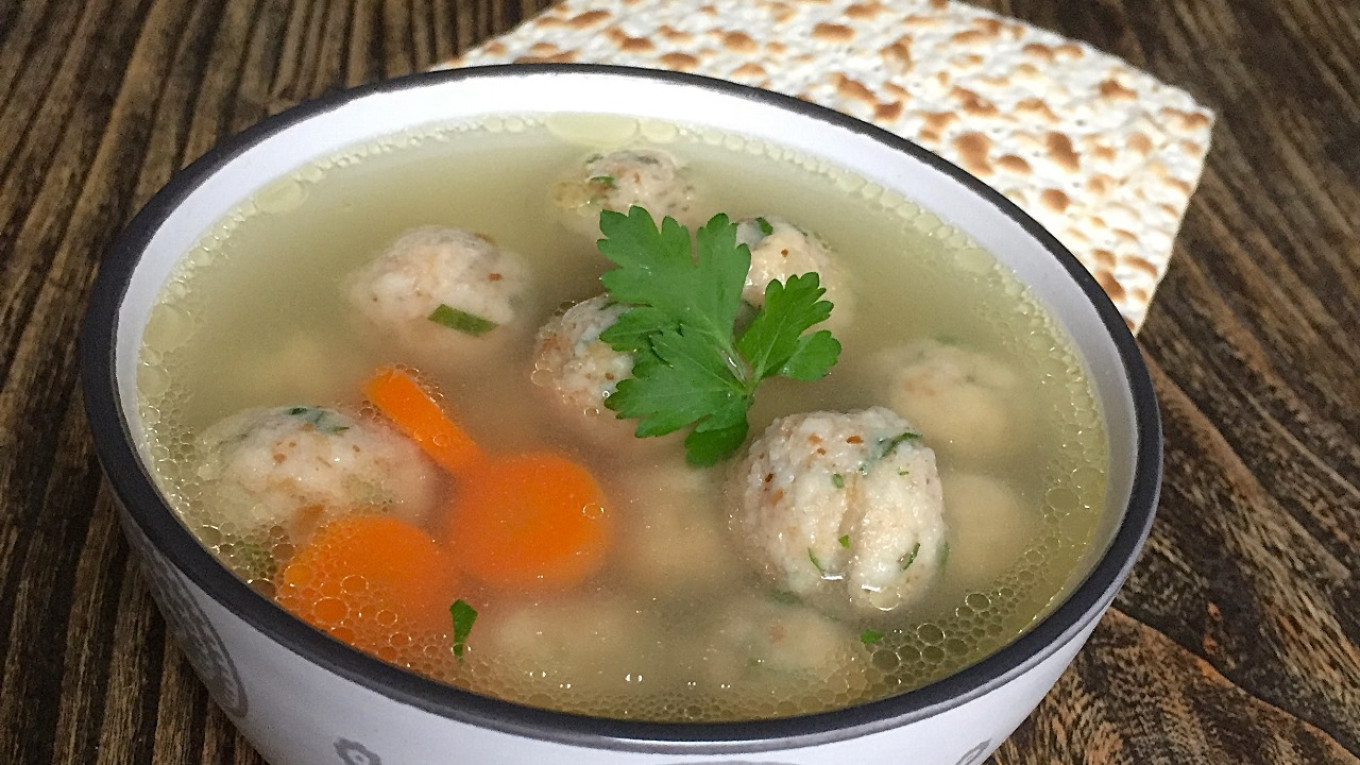
A Message from The Moscow Times:
Dear readers,
We are facing unprecedented challenges. Russia's Prosecutor General's Office has designated The Moscow Times as an "undesirable" organization, criminalizing our work and putting our staff at risk of prosecution. This follows our earlier unjust labeling as a "foreign agent."
These actions are direct attempts to silence independent journalism in Russia. The authorities claim our work "discredits the decisions of the Russian leadership." We see things differently: we strive to provide accurate, unbiased reporting on Russia.
We, the journalists of The Moscow Times, refuse to be silenced. But to continue our work, we need your help.
Your support, no matter how small, makes a world of difference. If you can, please support us monthly starting from just $2. It's quick to set up, and every contribution makes a significant impact.
By supporting The Moscow Times, you're defending open, independent journalism in the face of repression. Thank you for standing with us.
Remind me later.

